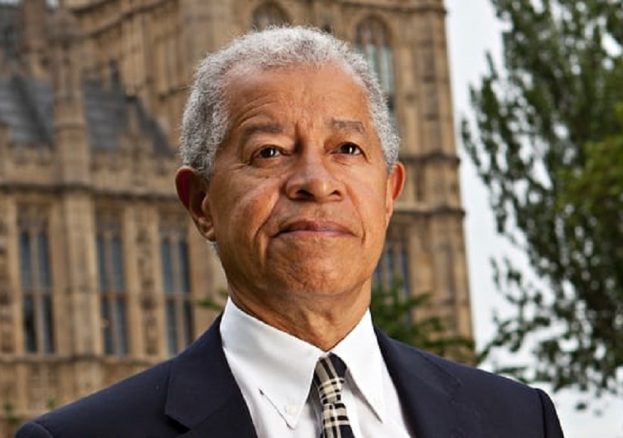
Herman Ouseley, who died on 2 October 2024 at the age of 79, was a titan in the struggle for racial equality in the UK. His passing has left us all in shock, marking a profound loss not only for the Black community but for everyone who believes in justice and equity. As we reflect on his life during Black History Month, we honour a man whose dedication to dismantling racism and uplifting the voices of the marginalised was unparalleled.
Born in British Guiana (now Guyana), Herman faced adversity early in life, losing his father at a tender age. At 11, he moved to Peckham, south-east London, to join his mother, a nurse, and found himself in a city grappling with identity and division. Arriving in 1958, he witnessed firsthand the racial tensions that erupted into riots. These formative experiences ignited in him an unyielding resolve to advocate for change, ultimately shaping his path as a champion for justice.
Herman’s public service journey began in 1963 at Middlesex County Council, where he quickly understood the power of community relations. His role as a community relations worker for a Lambeth council-supported organisation allowed him to uplift young Black people facing systemic challenges. By the late 1970s, he was leading Lambeth’s community relations unit, laying the groundwork for the impactful career that would follow.
In the early 1980s, he became head of the pioneering ethnic minorities unit at the Greater London Council (GLC) under Ken Livingstone, where he advocated for radical policies that prioritised minority communities and addressed the deep-rooted issues of racism. Herman believed passionately in the need for strategic representation of Black individuals across sectors, including education, and his visionary initiatives have become foundational to contemporary discussions on equality.
In 1993, his dedication led him to be appointed chair and chief executive of the Commission for Racial Equality (CRE), a role he held until 2000. During this pivotal period, he championed the promotion of National Black History Month as a significant national event in 1999 and was instrumental in producing the first National Black History Month magazine. These efforts not only elevated the visibility of Black history and culture but also inspired future generations to celebrate their heritage.
One of Herman’s most significant contributions was the establishment of the “Let’s Kick Racism Out of Football” campaign, later known as Kick It Out. Launched alongside Chelsea player Paul Elliott, this initiative boldly confronted the racism that plagued football and beyond. Herman’s own experiences in the sport fuelled his commitment to challenge discriminatory practices, and he worked tirelessly to protect Black players while addressing all forms of prejudice.
Herman’s influence extended far beyond the realm of sport. In 2001, a year after leaving the CRE, he authored a vital report on race relations in Bradford, shedding light on the dangers of ignorance and segregation within communities. His insights remain strikingly relevant today, reminding us of the work still needed to achieve true equality.
From 1997 to 2019, he chaired the Chandran Foundation, a London-based charity dedicated to providing educational and employment opportunities for disadvantaged young people. He also served on the board of the Institute of Race Relations and chaired several housing associations, demonstrating his unwavering commitment to improving the lives of those in his community.
In recognition of his tireless efforts, Herman was knighted in 1997 and made a peer in 2001, where he sat as a crossbencher in the House of Lords. He used this platform to advocate passionately for equality, policing, education, and sport, continuously reminding his colleagues of the importance of addressing systemic issues that affect the most vulnerable among us.
A devoted fan of Manchester United, as well as Millwall and Dulwich Hamlet, Herman expressed his love for football as a unifying force in society. He remained actively engaged with various organisations, including the board of the Manchester United Foundation, reflecting his belief in the transformative power of sport.
As we mourn the shocking loss of Herman Ouseley, we honour a titan whose life was dedicated to the pursuit of justice and equality. He will be profoundly missed, and his contributions to the fight against racism and discrimination will continue to inspire countless individuals. Herman leaves behind his beloved wife Margaret, a dedicated teacher, and their son and daughter. His legacy of courage and commitment will resonate for generations, reminding us all of the ongoing fight for justice and the importance of elevating Black voices.
Herman George Ouseley, Lord Ouseley, public servant and campaigner, born 24 March 1945; died 2 October 2024.
